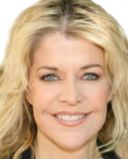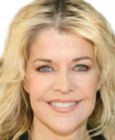Cognition
Ditch Leaning In and Promote Thyself
Published papers by male authors use more positive language.
Posted January 9, 2020
Scientific studies by male authors are far likelier to use words like "novel," "unique," "promising," "robust," and even the ever-so-slightly embarrassing "excellent," "enormous," "remarkable," "spectacular," and "unprecedented" in the titles or abstracts of their published research. A recent study, published in the BMJ, sought to discover the source of the underrepresentation of women in medicine and the health sciences and focused on self-promoting language in journal articles by male and female authors. After combing through over 6 million articles published between 2002 and 2017, study researchers discovered male first or last authors leaned on the word "novel" alone 59.2 percent more frequently than their female counterparts did.
In academic papers, the first author generally writes the paper, while the last or senior author originated the hypothesis or guided the work. The higher the impact factor of the journal—a number based on the ratio of citations the journal receives to the number of papers it publishes—the less likely female first or last authors were to use inflated terms to describe the significance of their work. For these prestige publications, articles written or overseen by female authors were 21.4 percent less likely to present research with the highly positive language in article titles or abstracts used by their male counterparts. In addition, their work received 13 percent fewer citations in high impact factor journals or nearly 10 percent across all journals.
The wince-inducing frequency of "novel," "unique," and "excellent" in the titles of journal articles reflects the increasing difficulty researchers face to get their research into print. Even as the number of journals rises, including pernicious pay-to-play, zero-impact-factor publications, the numbers of submissions from a growing body of international researchers is growing at a still-faster rate. Female researchers may be more squeamish than their male counterparts at what can seem like naked self-promotion. But the costs of this shying away from self-promotion are steep. Far fewer women than men make the transition from junior to senior faculty in the biomedical sciences, which partially reflects the roles played by high impact factor publications and citations in promoting faculty.
Maybe Sheryl Sandberg shouldn’t have counseled women to “lean in” to get ahead in their careers. More apt advice would be “blow your own horn, cite yourself, and throw around 'novel,' 'unique,' and 'robust' liberally."
And perhaps one final bit of career counseling, given the greater frequency with which female authors receive directives to revise their manuscripts compared with their male colleagues: use initials or a gender-indeterminate first name.
References
Lerchenmueller MJ, Sorenson O. The gender gap in early career transitions in the life sciences. Res Policy 2018;47:1007-17. doi:10.1016/j.respol.2018.02.009.
Lerchenmueller MJ, Sorenson O and Jena AB. (2019) Gender differences in how scientists present the importance of their research: observational study. BMJ 367: l6573.


